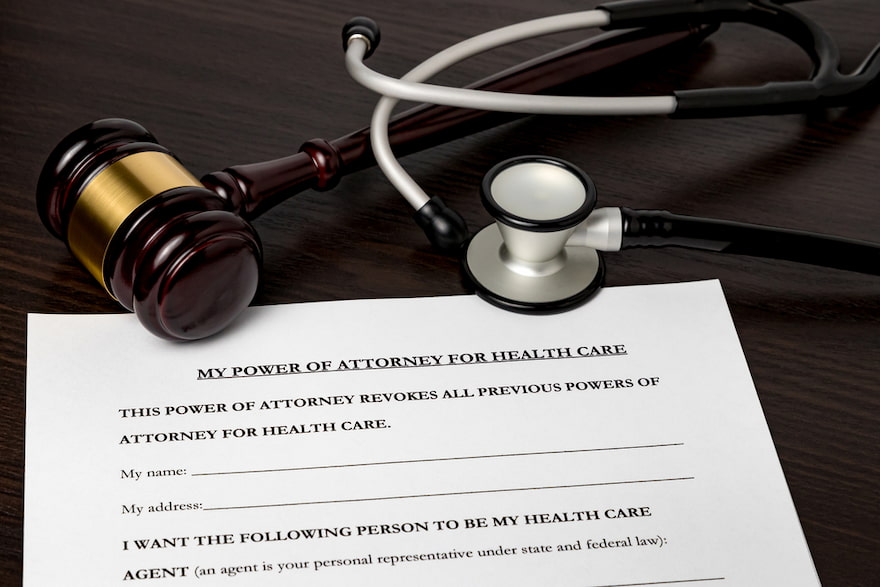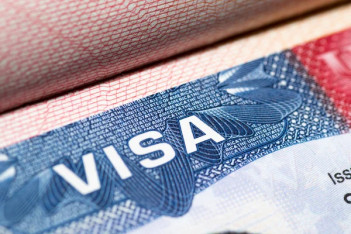Understanding Medical Power of Attorney and Durable Power of Attorney: Comprehensive Guide for 2025
In today’s complex legal and healthcare landscape, ensuring that your wishes are respected when you cannot voice them yourself is paramount. Two critical legal tools that help secure your autonomy and protect your interests are the Medical Power of Attorney (POA) and the Durable Power of Attorney. While both serve to designate trusted agents to act on your behalf, they apply in different contexts and cover distinct responsibilities. This article, prepared by Legal Marketplace CONSULTANT, aims to provide a detailed and comprehensive understanding of these instruments for the year 2025, helping you make informed decisions about safeguarding your health and financial matters.
What Is a Medical Power of Attorney?
A Medical Power of Attorney, sometimes called a healthcare proxy or durable healthcare power of attorney, is a legal document that allows you to designate a trusted person, known as your agent or proxy, to make medical and healthcare decisions on your behalf if you become incapacitated or unable to communicate your wishes. This instrument specifically pertains to decisions about treatments, procedures, and various aspects of medical care.
When you sign a Medical POA, you essentially empower your appointed agent to consult with healthcare providers, review medical records, consent to or refuse treatments, and make critical healthcare decisions aligned with your preferences and best interests. This authority is typically activated only under conditions where you are deemed incapable of making your own healthcare decisions by medical professionals.
Scope and Limits of Medical Power of Attorney
The Medical Power of Attorney covers only healthcare-related matters. It does not extend to financial decisions, property transactions, or broader legal affairs. Some key points to understand about the scope of a Medical POA include:
- The agent can make decisions about medical treatments, surgeries, medications, and life-sustaining procedures.
- The document may specify particular instructions or limitations guiding the agent’s authority.
- The agent’s decisions are generally expected to reflect your previously expressed wishes or best interests.
- The agent cannot make decisions unrelated to healthcare, such as financial management or legal matters.
What Is a Durable Power of Attorney?
In contrast, a Durable Power of Attorney primarily focuses on financial and legal matters. It authorizes your designated agent to act on your behalf regarding your assets, property, bills, taxes, business operations, and other financial affairs if you become incapacitated. The term “durable” indicates that the power remains effective even if you lose mental competence.
The Durable Power of Attorney grants broad authority to manage your financial life, enabling your agent to pay bills, deal with banks, file tax returns, handle real estate transactions, and take other necessary steps to maintain your financial stability during periods of incapacity.
Differences Between Medical and Durable Power of Attorney
To clearly distinguish between these two powers of attorney, consider the following:
- Purpose: Medical POA relates exclusively to healthcare decisions; Durable POA concerns financial and legal matters.
- Scope of Authority: Medical POA agents decide on treatments and care, whereas Durable POA agents manage money, property, and legal issues.
- Activation: Both typically activate upon incapacity, but the conditions and documentation to prove incapacity may differ.
- Expiration: Medical POA authority usually ends upon death or reversal of incapacity; Durable POA can be designed to continue after incapacity and may or may not terminate upon death depending on local laws.
Why Do You Need Both Documents?
Many individuals choose to establish both a Medical Power of Attorney and a Durable Power of Attorney to ensure comprehensive protection of their interests. While the Medical POA guarantees that healthcare wishes are honored by a trusted decision-maker, the Durable POA secures ongoing management of financial and legal affairs without court intervention, which can be time-consuming and costly.
Having both documents in place offers several advantages:
- Ensures your healthcare preferences are followed by someone who understands your values.
- Allows your appointed agent to manage financial matters efficiently during incapacity.
- Helps avoid guardianship or conservatorship proceedings that may arise if no agent is appointed.
- Provides peace of mind to you and your family and reduces stress during challenging times.
Legal Requirements for Power of Attorney Documents
The formation and validation of both Medical and Durable Powers of Attorney must comply with state-specific laws, which can vary significantly. Common legal requirements include:
- The document must be in writing and clearly state the powers granted.
- You must be of sound mind and legally competent at the time of signing.
- The document usually needs to be signed in the presence of witnesses and/or a notary public.
- Some states require the inclusion of specific statutory language or forms.
- The document may require acceptance by the designated agent, either in writing or by act.
It is essential to consult the laws of your state and work with legal professionals to ensure your documents are properly drafted and executed.
Choosing the Right Agent
Selecting an appropriate agent for both Medical and Durable Power of Attorney documents is critical since this person will hold significant responsibility for your welfare. Consider these factors when choosing your agent:
- Trustworthiness and reliability.
- Ability to understand and respect your wishes and values.
- Availability and willingness to serve in the capacity requested.
- Knowledge or ability to learn about medical or financial matters.
- Good communication skills to interact with healthcare providers, financial institutions, and family members.
Revocation and Modification of Powers of Attorney
Both Medical and Durable Powers of Attorney can be revoked or modified as long as you remain competent. It is advisable to periodically review these documents to ensure they reflect your current wishes and circumstances. Important points include:
- You can revoke a power of attorney at any time by providing written notice.
- Changes should be communicated to all relevant parties, including your agent, doctors, and financial institutions.
- Modifications can be made by creating a new document that explicitly revokes the prior one.
Common Misconceptions About Powers of Attorney
Despite their importance, there are several misunderstandings regarding powers of attorney that can lead to improper planning or legal complications:
- Assuming one document covers both medical and financial decisions—these are separate legal instruments and must be executed individually.
- Believing they take effect immediately upon signing—most POAs activate only upon incapacity or a specified event.
- Thinking you lose control by granting a POA—powers are only effective when you cannot act yourself and can be revoked while competent.
- Assuming an oral power of attorney is valid—legal requirements typically mandate written, signed, and witnessed documents.
How to Create Your Medical and Durable Powers of Attorney
- Assess your needs: Identify what powers you want to grant concerning healthcare and financial matters.
- Select your agents: Choose trusted individuals for each power of attorney role.
- Consult a legal professional: Work with attorneys knowledgeable in estate planning and elder law to draft your documents according to your state’s requirements.
- Execute the documents properly: Sign your powers of attorney in the presence of requisite witnesses or notary public.
- Distribute copies: Provide copies to your agents, healthcare providers, financial institutions, and keep a copy for yourself in a safe place.
- Review and update periodically: Life changes may necessitate revisions to your powers of attorney.
Importance of Professional Legal Assistance
Creating valid and effective Medical and Durable Powers of Attorney requires careful attention to legal details and a clear understanding of your personal circumstances. Mistakes or ambiguities in these documents can result in delays, disputes, or situations where your wishes are not honored.
Legal professionals at Legal Marketplace CONSULTANT are equipped to guide you through the process, ensuring your documents are customized, legally sound, and enforceable. Professional assistance helps you avoid common pitfalls, properly delineate the scope of authority, and choose suitable agents.
If you require expert guidance or assistance in drafting your powers of attorney, please contact Legal Marketplace CONSULTANT via the communication channels provided in our bio or send a private message to schedule a consultation.
Additional Considerations
Beyond the powers of attorney, consider integrating these related documents to form a comprehensive estate and healthcare planning package:
- Living Will or Advance Healthcare Directive – Documents your specific wishes about end-of-life care.
- HIPAA Authorization – Allows your agent to access your medical information.
- Last Will and Testament – Specifies distribution of your estate upon death.
- Revocable Living Trust – Helps manage your assets and potentially avoid probate.
Together, these documents complement the powers of attorney and form a robust plan to manage your healthcare and financial affairs during your lifetime and after.
Conclusion
Understanding the distinctions between Medical Power of Attorney and Durable Power of Attorney is essential to comprehensive personal planning in 2025. The Medical POA exclusively governs healthcare decisions and appoints an agent to make informed medical choices when you cannot. The Durable POA, on the other hand, grants authority to manage your financial and legal matters during periods of incapacity. Utilizing both instruments ensures your health and financial interests are fully protected.
These legal documents require careful drafting to comply with state requirements, proper choice of trusted agents, and periodic review to remain effective and reflective of your wishes. Legal Marketplace CONSULTANT is committed to assisting clients in navigating the complexities of these powers of attorney with expertise and care. For legal assistance, do not hesitate to reach out through the contacts in our bio or send a private message for personalized support.
Legal Marketplace CONSULTANT — a trusted legal company specializing in comprehensive legal services for individuals and businesses. Our team consists of experienced attorneys, legal consultants, tax advisors, auditors, and accountants dedicated to delivering tailored legal solutions to meet your needs.































